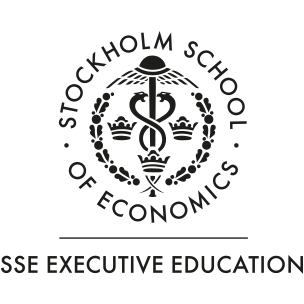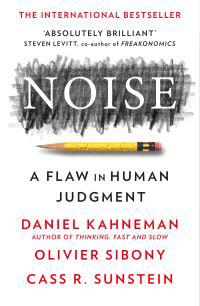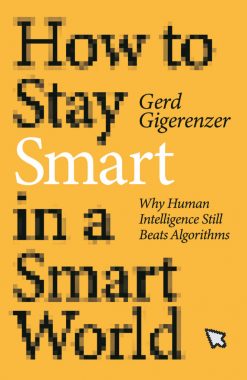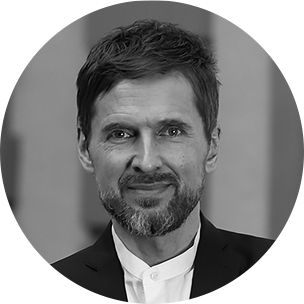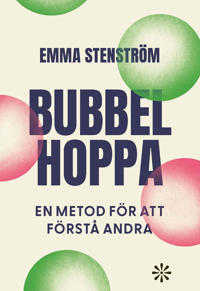
Inspiration and new perspectives – recommendations for the summer
At SSE Executive Education, we provide organizations and their leaders with new knowledge, research, innovative ways of thinking, and new tools that enable them to successfully drive their organization into the future. For the summer, we would like to share our recommendations for books, podcasts, and other resources that challenge thoughts, habits, and perspectives in a time of change. We wish you a lovely summer!
NOISE: A FLAW IN HUMAN JUDGMENT
Author: Daniel Kahneman, Olivier Sibony and Cass R. Sunstein
HOW TO STAY SMART IN A SMART WORLD: WHY HUMAN INTELLIGENCE STILL BEATS ALGORITHMS
Author: Gerd Gigerenzer
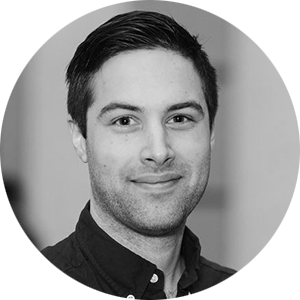
Recommended by: Sebastian Krakowski, Assistant Professor at the Stockholm School of Economics and Program Director of From Data to Business Impact at SSE Executive Education.
“As we navigate an era marked by volatility, uncertainty, complexity, and ambiguity (VUCA), the role of human judgment is becoming increasingly important. At the same time, the world is increasingly turning its attention to the development and applications of unprecedented artificial intelligence (AI) to address the many challenges we face. Renowned scholars Daniel Kahneman and Gerd Gigerenzer offer invaluable yet diverging insights into this complex landscape in their respective works, ‘Noise: A Flaw in Human Judgment‘ and ‘How to Stay Smart in a Smart World: Why Human Intelligence Still Beats Algorithms‘.
Kahneman, along with co-authors Olivier Sibony and Cass R. Sunstein, explores the concept of ‘noise,’ an unsystematic variability that distorts judgment. This is distinct from bias, which represents a systematic deviation from truth. They argue that noise, generated by cognitive biases and emotional reactions, impacts various fields, including business, law, and medicine. The authors propose that companies implement noise audits and decision hygiene as potential noise mitigators.
Conversely, Gigerenzer emphasizes the enduring importance of human intelligence, especially when tackling uncertainty, complexity, and ethical dilemmas, areas where AI tends to falter. He advocates for ‘fast and frugal heuristics,’ simple rules that guide our decisions in complex scenarios much better than complex and sophisticated AI.
The books present contrasting perspectives on decision-making. Both recognize the importance of human judgment, cautioning against over-reliance on AI, but differ in their proposed solutions: Kahneman advocates for algorithmic and data-driven approaches such as noise reduction, while Gigerenzer promotes human judgment enhancement via simple decision rules known as heuristics.
This divergence fuels an enduring academic debate. Kahneman supports the ‘heuristics and biases’ model, contending that our cognitive shortcuts can lead to biased, irrational decisions. Gigerenzer counters that these heuristics, when employed correctly and in context, can foster effective and even superior decision-making.
These conflicting yet thoughtful viewpoints underscore the complexities of decision-making in our rapidly evolving world. Kahneman highlights the hazards of noise and biases, championing consistency and rationality, while Gigerenzer encourages harnessing our intuitive capabilities and effective use of heuristics. The rise of generative AI such as ChatGPT underscores the relevance of this debate to our turbulent times, making careful consideration of both viewpoints essential for informed decision-making.
In essence, the Kahneman-Gigerenzer debate embodies the intricate relationship between artificial and human intelligence, between rationality and intuition, and between art and science. Their works should guide us towards a future that where technology amplifies and augments our pursuit of uniquely human goals and preferences – a future that is technology-informed, yet human-centered.
[Disclaimer: I used ChatGPT (GPT-4) to improve the language and style of this book recommendation. However, the ideas are my own.]”
MORE RECOMMENDATIONS:
- Vetenskapsradion Klotet, Radio Sweden P1
- TED Talk by the psychologist and economist Dr. Per Espen Stoknes
- Black Mirror, TV show, Netflix
Recommended by: Johan Nordlund, program director at SSE Executive Education in Stockholm, whose focus areas are sustainability and financial economics.
“To address the escalating environmental crisis – climate change, loss of biodiversity, degradation of ecosystems, as well as ocean, air, and land pollution – we must act and make changes, both as individuals and organizations. One of the keys to that change is a deeper understanding of the nature of things. That is why my first recommendation is Vetenskapsradion Klotet (The Globe Podcast by the Science Radio), where listeners can hear in-depth discussions on the biggest and most important environmental issues of our time, all of which are presented and explained in an interesting way that captures different viewpoints while keeping the scientific perspective front and center. Thanks to its format of conversations and interviews with different visitors, the podcast is easy to listen to and every episode feels new and fresh. Klotet has a large library of episodes: the forest and its conflicts of aims, technological advancements in solar, wind, and nuclear power, the recipe for protecting biodiversity, peatlands and wetlands, analyses of current climate politics, and so much more. Just pick a topic that interests you and start listening! https://sverigesradio.se/vetklotet (Please note that in this podcast series they speak Swedish).
I would also like to recommend Per Espen Stoknes’s TED Talk from 2017, How to transform apocalypse fatigue on global warming, which sheds light on the importance of how we communicate about ‘the climate crisis’, using the human psyche and how it works as a basis. In other words, how do we get people to join the cause instead of detaching themselves and/or becoming habituated desensitized over time. Storytelling and nudging are both part of the solution. https://www.youtube.com/watch?v=F5h6ynoq8uM
Last but not least, I also recommend watching the Netflix show Black Mirror this summer. In addition to its entertainment value, the show does a wonderful job of giving viewers ‘food for thought’ on things like human innovation and the accelerating pace of technological development. The episodes are all stand-alone, and I’d like to recommend three in particular: Nosedive (Note: the evaluation wave in our modern society, the human urge for comparing, and more…) and USS Callister (Note: Elon Musk’s Neuralink, chip implants in the brain…).”
WE WOULD ALSO LIKE TO RECOMMEND…
BUBBLE-HOPPING
Author: Emma Stenström
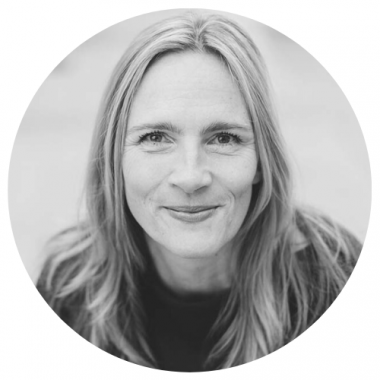
In this book Emma Stenström, Associate Professor at SSE, introduces a concrete and research-based method, bubble hopping, to increase the understanding of yourself and others and hopefully bridge divides between people.
By emphasizing how “good questions need to be responded to by good listening”, bubble-hopping can provide an easy-to-use method for organizations that want to create a healthy working environment. But most of all, it teaches you how to practice listening, questioning, managing conflict, and building trust – essential skills in our private and professional lives.
THE WORLD NEEDS GREAT LEADERS. BE ONE!
We offer a wide range of educational programs. Find the right education for you >>
